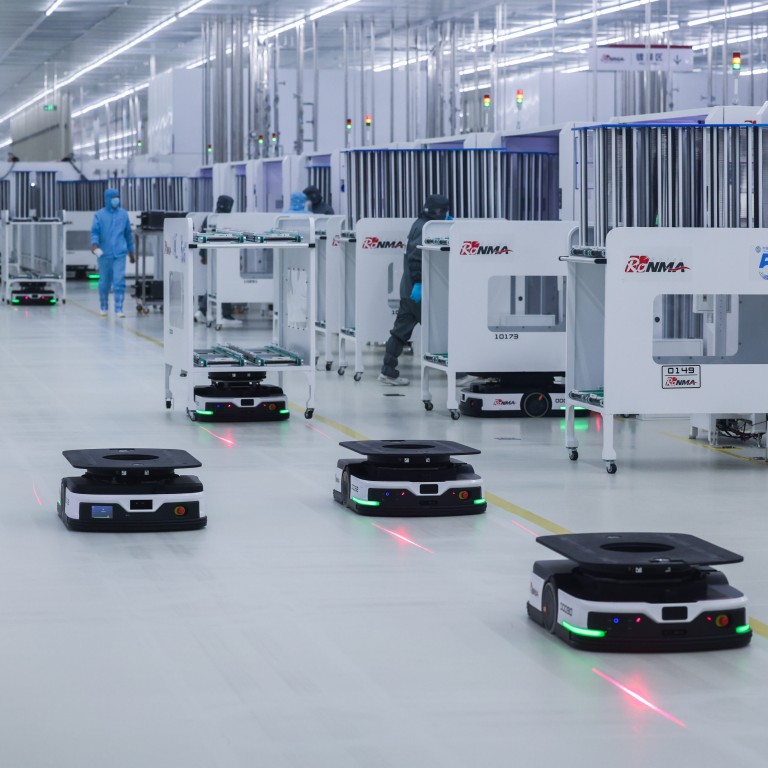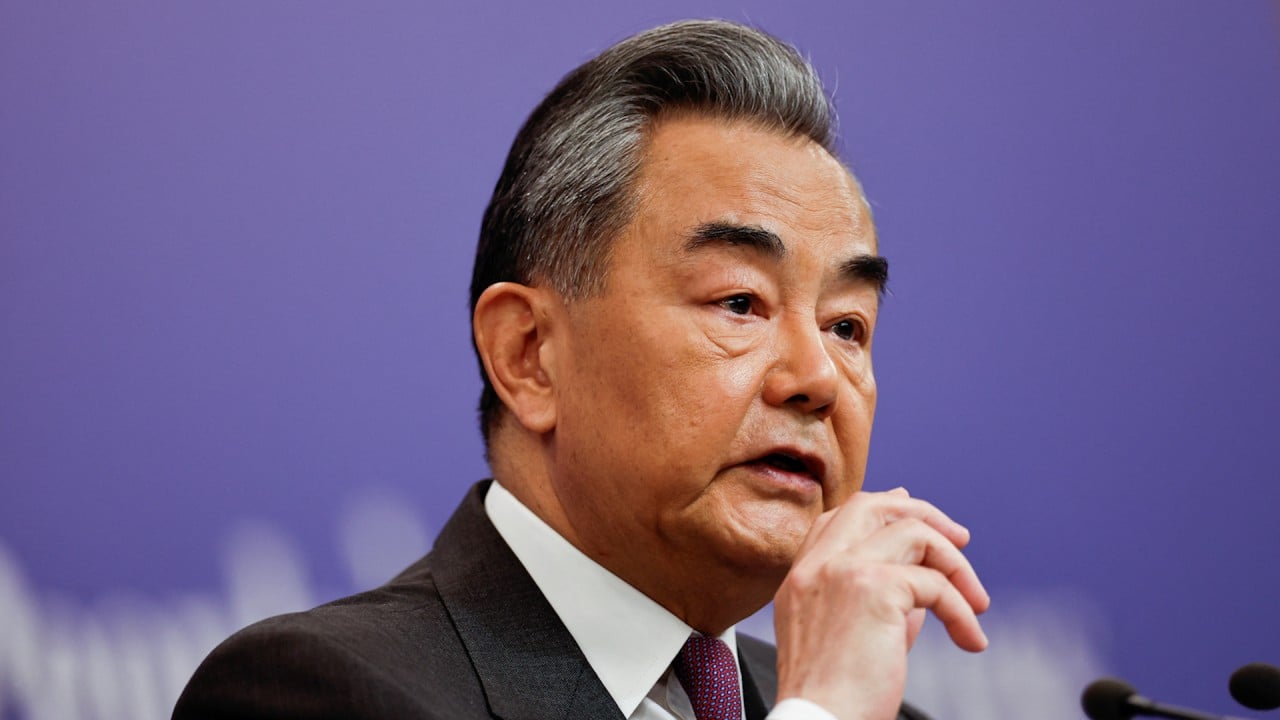
Mainland China steps up efforts to woo Taiwanese investors despite cross-strait tensions, but why aren’t more listening?
- Mainland China is seeking to further integrate with Taiwan economically despite ongoing cross-strait tensions
- Taiwanese investments approved for mainland China, a historic destination for the island’s export manufacturing sector, fell to a 22-year-low in 2023
A city in the eastern province of Zhejiang has become the latest mainland China locale to court Taiwanese investors, despite heightened cross-strait tensions, but analysts said Beijing’s efforts are only having an impact on firms with existing relationships.
Shaoxing’s four-day networking event attracted 100 Taiwanese businesspeople with interest in the local software sector. Many had existing assets in mainland China, such as factories, and had hopes to expand.
Its gambit marked the latest effort at integrating Taiwan economically with mainland China.
“Zhejiang has a strong economic history and a demand for tech stuff, which helps Taiwanese companies, owing to support from the local government,” said Darson Chiu, a fellow with the Taiwan Institute of Economic Research.
Taiwan-mainland China investment hits 22-year valley as relations sour
But the forums, tax breaks, cuts in red tape and land discounts offered by governments in parts of mainland China are still not enough to attract Taiwanese companies to invest if they are not already in the market, industry analysts and a trade group official said.
Mainland Chinese officials are expected to step up their efforts this year to attract investment, with a focus on integrating the two sides that stand at odds politically.
Beijing sees Taiwan as part of China to be reunited by force if necessary. Most countries, including the US, do not recognise Taiwan as an independent state, but Washington is opposed to any attempt to take the self-governed island by force and is committed to supplying it with weapons.
Many of the Taiwanese investors in Shaoxing already had existing operations in mainland China, said Chen Yu-yuan, a director with the Taiwan Electrical and Electronic Manufacturers’ Association.
He said the networking involved proposals including seeking Taiwan’s help to build a baseball stadium.
The 3,200 association members have already launched more than 10,000 projects in mainland China, including factories.
Chen Yu-yuan, who attended the event in Shaoxing, said the members feel “safe” investing in mainland China despite political tensions. He said some also make use of government incentives around mainland China.
But the number of members with projects in mainland China has shown little increase or decrease over the past few years, he added.
With China’s economy slowing down, companies face more competition, tricky rules and the need to handle cultural differences smartly
“With China’s economy slowing down, companies face more competition, tricky rules and the need to handle cultural differences smartly,” Chiu said.
Taiwanese investors have picked sites in mainland China since the 1980s to harvest cheap labour and land, and today many tap into mature supply chains and solid factory infrastructure.
Taiwanese firms rooted in mainland China can soften business risks that follow any increase in cross-strait political friction, said Joanna Lei, chief executive of the Chunghua 21st Century think tank in Taiwan.
Taiwan remains one of the biggest investors in China, according to data from the Taiwan’s cabinet, including assemblers of consumer electronics and food and beverage retailers.
Because of cross-strait relations, people feel concerned about whether can get their money back and think it’s harder and harder to invest
“If you have your business there and you want to expand, then you may find shared benefits,” said Chen Yi-fan, assistant professor of diplomacy and international relations at Tamkang University in Taiwan.
“But I don’t think people in Taiwan will invest over there unless they already have companies or factories.
“Because of cross-strait relations, people feel concerned about whether they can get their money back and think it’s harder and harder to invest.”
Where is the economy going, that’s a very large uncertainty, and to invest you’ve got to have an investment plan
Taiwan’s Mainland Affairs Council said mainland China’s incentives for investors are ineffective, while it also pointed to weak spots in its economy, which is grappling with property, employment and consumer confidence issues.
“Where is the economy going, that’s a very large uncertainty, and to invest you’ve got to have an investment plan,” said Liang Kuo-yuan, retired founder of the Taipei-based Yuanta-Polaris Research Institute think tank.
“In that plan, you’ve got to factor in the macro environment.”
Taiwanese investors are looking for long-term improvements where they conduct their business, to allow for “sustainable development”, said Hu Jin-li, a professor with the Institute of Business and Management at National Yang Ming Chiao Tung University in Taipei.
“Any time-limited incentive scheme such as tax reductions and real estate loans cannot keep an investor to stay and grow at a specific location,” Hu said.
Politburo Standing Committee member Li Xi also called on mainland China’s southern Fujian province to “explore a new path for integrated development across the Taiwan Strait”.
US firms in Taiwan adapt by picking local partners as investments grow: AmCham
Fujian province was directed last year to become a demonstration area for integrated development with Taiwan.
And Taiwan Affairs offices in other parts of coastal China, including Shanghai and Guangdong province, are likely to jump onto the cause of recruiting Taiwanese businesspeople, said Huang Kwei-bo, an associate professor of diplomacy at National Chengchi University in Taipei.
In 2022, Taiwan residents also received special permission to operate companies in 27 mainland Chinese pilot areas, including Beijing and Shanghai.
If the people there like something you design, then the whole country will like it
Beijing is seeking Taiwanese investment to buck up their economy and for “political consideration”, Liang said.
Last year, mainland Chinese officials declared Shaoxing a digital cooperation zone for Taiwan in a precursor to the networking event.
Shaoxing and Zhejiang bill themselves as hotspots for investment in the digital economy and artificial intelligence, said Chen Yu-yuan.
He said consumer trends that begin in well-off Zhejiang often spread nationwide.
“If the people there like something you design, then the whole country will like it,” he said.


